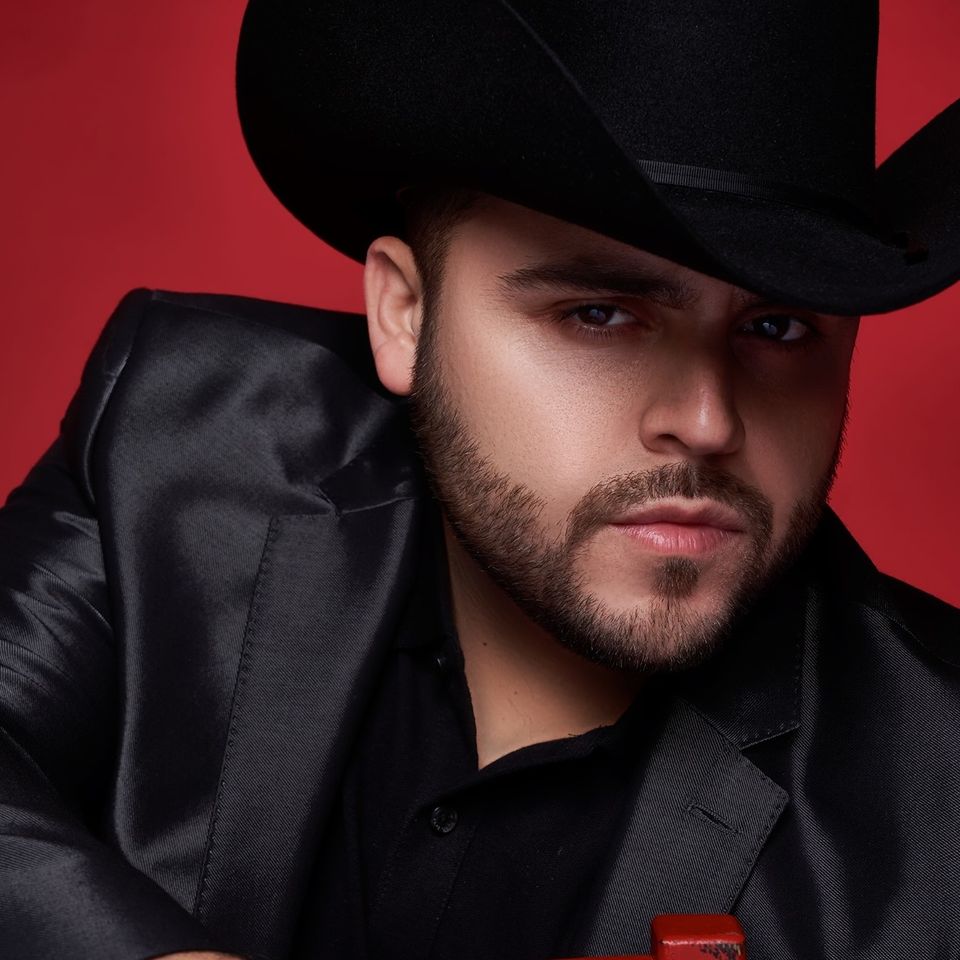How far can ambition push an artist, and at what cost? The recent legal troubles of Regional Mexican music star Gerardo Ortiz offer a stark illustration of the complexities and compromises that can accompany fame and fortune in the entertainment industry.
The name "Gerardo Ortiz" has been dominating headlines recently, not for chart-topping hits, but for his involvement as a witness in the trial against ngel del Villar, a music producer under investigation in the United States. Ortiz appeared in a Los Angeles federal court on Wednesday to testify against his former boss and CEO of Del Records, ngel del Villar. The music executive is facing charges related to alleged financial dealings.
| Full Name | Gerardo Ortiz Medina |
| Date of Birth | October 5, 1985 |
| Place of Birth | Pasadena, California, USA |
| Genres | Regional Mexican, Corridos |
| Occupation | Singer, Songwriter |
| Years Active | 2000Present |
| Notable Songs | "Dmaso," "El Chavo," "Perdname," "Egosta" |
| Associated Acts | Del Records |
| Website | gerardoortiz.com |
Ortiz's career, which began around the year 2000 with his participation in the first edition of the children's musical reality show "Cdigo F.A.M.A.," has been marked by remarkable success in the regional Mexican music scene. The artist is known for his corridos, narrative ballads that often chronicle the lives and experiences of individuals, including those involved in the world of organized crime. Indeed, Ortiz has built a significant following by singing about figures in the narcotrafficking world. He has, in particular, sung about leaders of the Sinaloa Cartel, including Joaqun "El Chapo" Guzmn Loera, Ignacio "Nacho" Coronel Villarreal, and Dmaso Lpez Serrano, also known as "El Mini Lic."
- Exploring The Unique Aspects Of Subhshree Sahu Bathroom
- Tate Mcrae Fappening Unraveling The Buzz Around The Controversy
The legal proceedings involving Ortiz are a continuation of a story that intertwines music, money, and the murky world of organized crime. Ortiz himself pleaded guilty to a conspiracy charge, specifically for violating a federal law in the United States by conducting business and performing concerts with a promoter in Mexico linked to organized crime, specifically the Jalisco New Generation Cartel. This plea highlights the complex relationship between the music industry and the drug trade, especially within the genre of narcocorridos.
The singer's guilty plea in a U.S. court stemmed from his participation in a money-laundering network through his performances in Mexico. Legal documents obtained by Univision Noticias revealed details about the bail amount and the status of his criminal proceedings. This event serves as a stark reminder of the risks associated with these associations, which have often involved financial transactions and concert arrangements.
The case also involves Jess Prez Alvear, of Gallistica Diamante, who was accused by the U.S. Department of the Treasury in 2018 of belonging to a money-laundering network. This adds another layer of complexity and a financial angle to the case.
- Cory Chases Journey Unveiling The Life Of Her Husband
- Exploring The Life And Legacy Of Camilla Araujo Xxxx
The accusations against Del Records, and now against Ortiz himself, are significant. "El artista de narcocorridos se declar culpable de un cargo de conspiracin para evadir sanciones contra un narcotraficante designado," as reported by various media outlets. The fact that a prominent artist is implicated in such activities inevitably raises questions about the responsibility of artists in the narratives they create and the individuals they associate with.
The choice of subject matter, especially in the corridos, has generated both popularity and controversy. Ortiz has achieved considerable success, with multiple albums in a short span, solidifying his place as one of the leading figures in the genre. However, his work has also drawn criticism for allegedly glorifying drug traffickers and potentially contributing to the romanticization of criminal lifestyles.
The music video for "Egosta," a Regional Mexican song by Gerardo Ortiz, released in 2018, provides a glimpse into the themes and styles that define his work. The availability of his music, including a selection of 30 hits, on platforms like YouTube further attests to his widespread appeal.
Ortiz's story, however, goes beyond just legal battles and musical success. He has also ventured into business, creating his own brand lines with the aim of offering customers a variety of high-quality products at competitive prices. This business aspect highlights the multifaceted nature of his career, encompassing not only music but also entrepreneurship.
The controversy that has swirled around Ortiz, including the legal issues and the genre of narcocorridos he frequently performs, provides a complex and nuanced look at an artist at the peak of his career, highlighting the potential rewards and risks when dealing with sensitive subject matter.
The ongoing legal proceedings against his former associates, along with his own guilty plea, paint a picture of a career that has been significantly impacted by the music industry, and the risks associated with it. The case against Angel del Villar is of great importance.
In the case of Gerardo Ortiz, the singer's choices have had a direct impact on the path of his career and his life. By pleading guilty, Ortiz has acknowledged that he has made decisions that have led to legal consequences. This is a lesson in making the proper choices in professional and personal life.
The music industry, particularly in genres like Regional Mexican music, has often been intertwined with cultural and financial issues. For Gerardo Ortiz, this relationship has resulted in both success and controversy. The legal battles and guilty pleas in the United States involving Ortiz have made it clear that the intersection of fame, business, and crime can lead to complicated challenges.
The trial provides a window into the darker side of the entertainment industry, where the drive for success and financial gain sometimes lead people to make compromised decisions. Ortiz's story acts as both a warning and a reminder of the importance of making smart decisions.
The current legal troubles have brought into the light a complex scenario, bringing up issues about the responsibility of artists and the ramifications that can happen with a career in the spotlight, and also the decisions that people make.
Ortiz's journey, from singing in reality shows to becoming a famous artist in the Regional Mexican music scene, represents a career that has both success and controversy. The fact that Ortiz is now involved in the trial indicates that the decisions he has made along the way, have had lasting impacts on his life and career.
The impact of the trial extends beyond just the individuals involved. It also touches upon the cultural context of narcocorridos and their impact. The lyrics, which are known to speak of the lives of drug traffickers, have sparked important questions about the role of music in influencing or glorifying illegal activities, and also their effect on the public.
The ongoing case involving Gerardo Ortiz serves as a reminder of the issues that artists can encounter when engaging with sensitive topics. The legal actions and the singer's plea serve as important reminders about the difficulties in making choices, and the influence of the people one associates with.
The case of Gerardo Ortiz acts as a cautionary tale. The artist's trajectory, success, and the legal repercussions, are all crucial points for anyone interested in how fame and talent interact with money, power, and the law.
The situation provides an opportunity to learn, both about the singer's journey and the broader cultural context in which his career has unfolded. The details of the case may offer new perspectives on the complicated interaction between art, business, and morality.
The legal actions involving Gerardo Ortiz and Angel del Villar are a testament to the intricacies of the entertainment industry and a reminder of the need to navigate complex situations. In the end, the narrative involving the singer is not just about court cases or hit songs. It is an important chapter in his career and a discussion on the responsibility of artists.


